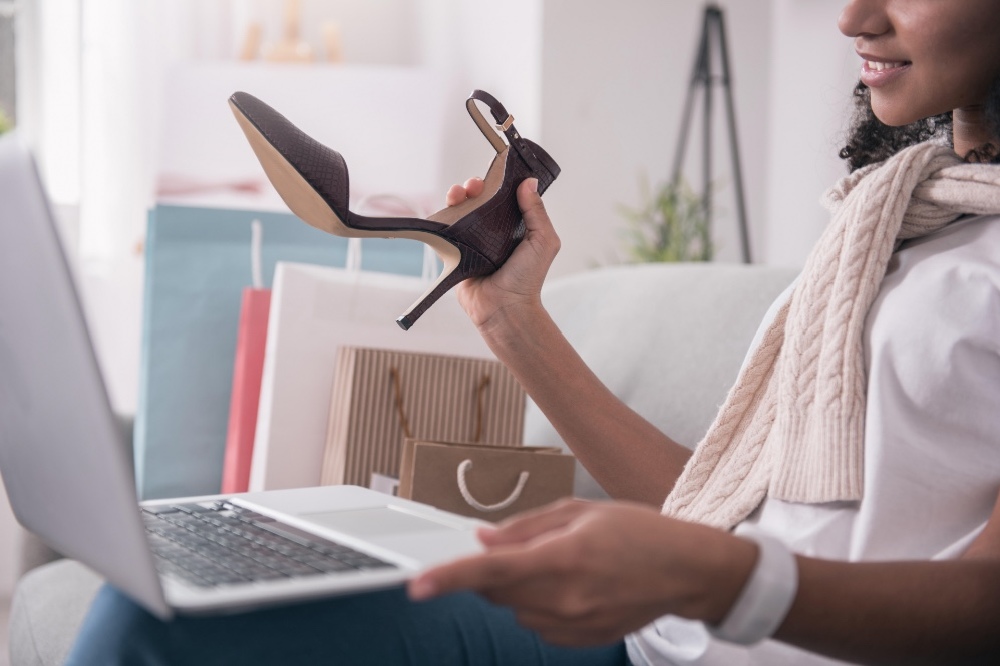This month marks Mental Health Awareness Month in the US, but that doesn’t mean we can’t discuss mental health issues globally. One thing that affects a lot of people whether they admit it or not is impulsive spending. This is essentially an addiction at worst and a lack of willpower at best, but here are a few ways you can help curb your money issues if it’s starting to become an issue.

Image credit: Dmytro Zinkevych / Alamy Stock Photo
Create a budget plan
If you’re super geeky, you could create a spreadsheet with formulas and pie charts and all sorts, though all you really need to do is make a list of your outgoings monthly (or weekly, depending on your income) then calculate how much you have left over to spend. Doing this means you can’t overspend without realising, because you’ve already worked out where your money is going.
Involve someone you trust in your finances
If your budget plan doesn’t work because you still manage to spend using credit cards and overdrafts, having someone to hold you accountable over your spending can really put you off those “secret sprees”. If possible, give your online banking passwords to a trusted individual like a parent, sibling or partner so that they can keep an eye on your spending and intervene if necessary. Be sure that you wholly trust that person though, and don’t ever give out your passwords to someone you don’t know or someone you think could take advantage of you. In the most extreme circumstances, have someone be physically in charge of your bank cards so that you can’t use them unnecessarily.
Remove your cards from your favourite websites
The great thing (or bad thing, in this case) about online shopping for the most part is that you don’t even need to be in the vicinity of your bank cards to buy stuff. You can have their details saved on sites like Amazon, or else on PayPal or Apple Pay so that even if someone else is in charge of your cards you can still spend. Remove your cards from all of these places and anywhere else you have saved cards including buy-now-pay-later platforms such as Klarna. Doing this means you have to insert your card information every time you buy something, and you are much more likely to think before you buy this way.
Take some time out
If it’s visiting shops that’s the problem, give yourself a cooling off period. In other words, put yourself on lockdown. Get a friend or family member to do your grocery shopping if necessary. Allow yourself time away from stores to reflect and break your shopping habits, and you will ultimately give yourself a chance to gain a bit of control.
Set up a spending limit with your bank
Some banks will help you stay out of debt by putting a daily spending limit on your debit and credit cards. You set the limit, and the bank makes sure you don’t go over. If you do try and spend more than your limit, your payment will be declined. Obviously, be mindful of unexpected emergencies when setting your limit.
Get an interest freeze
The UK has a Debt Respite Scheme, also known as Breathing Space. The standard version means anyone who applies will be protected from creditor action for 60 days and, in most cases, any interest on your loans will be frozen for that time. If you are being treated by a mental health crisis team, these protections last as long as your treatment and then 30 days after. This reduces the pressure of payments and allows you to catch up if high interest rates are stopping you from making much progress on your debt repayments.
MORE: Parenting Advice: Seven ways to save money while you're on maternity leave
Get professional help
The best thing you can do if your spending feels completely out of your hands is to seek out a therapist who can help you with the impulsions, and help you work through the mental and emotional issues that may be causing them. Impulsive spending is as much of an addiction as gambling or drinking and often there’s a deep-seated reason these habits have arisen which, when explored, will ultimately enable you to break the cycle.
Tagged in Money Money Advice Mental Health Budget

